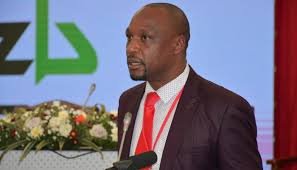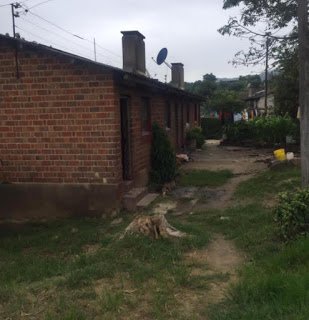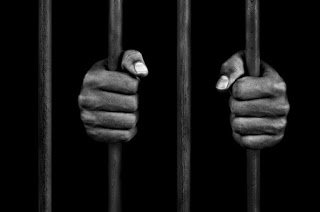 |
| City of Mutare mayor Blessing Tandi |
…after 500% rate hike, punitive
water step-up bills
Felix
Matasva
MUTARE- City
of Mutare has come under immense pressure from young people who have taken to
social media to register their displeasure against what they describe as an
insensitive 500 percent rate hike.
The online-based social accountability and justice movement,
running under the banner #RatesMustFall, has put the local authority in a catch
22 situation.
Mayor Blessing Tandi has said he was worried about the
campaign, adding that council remained ready to listen to residents’
grievances.
Tandi said council’s
2021 budget had been put together using the city’s 2017 budget model which was
based on US dollars revenue, meaning that rates had to be converted to the
value of the local currency.
“Most of our operations
are being affected by inflation. If we hadn’t increased rates, all the value would
have been eroded by inflation, with a serious bearing on service delivery.
“Since we are a listening
council, we have to listen to what the residents say and this outcry means council
has to reconsider its position. Residents should also know that reducing rates
will have an impact on service delivery and development in the city,” said
Tandi.
Youth groups have lambasted the local authority for the
astronomical hike in rates, arguing that residents were already under serious
financial strain due to the Covid-19 induced national lockdown.
Conscious Development and Empowerment Trust (CODET) programmes
coordinator Pride Mkono told TellZim that they wanted a more accountable and
considerate council.
“The Social Accountability and Justice Campaign is
aimed at promoting a culture of dialogue between local the authority and
residents. We are going to develop and adopt a Social Accountability and
Justice Charter for the City of Mutare.
“The charter will be a social contract between the City
and its residents on promoting dialogue and consultation on key issues. The
campaign will run for 12 months, a period within which we hope to create a
platform for sustainable engagement between council and residents as well as civil
society and business.
“Next week, we will be crowdsourcing for residents’
concerns regarding the rate hike in the 19 wards. We will convene discussions
across all 19 wards via WhatsApp. We will also develop and share content such
as posters, short videos and skits.
“After the hard lockdown is relaxed we will undertake
physical meetings, roadshows and outreaches,” said Mkono.
Zimbabwe Coalition on Debt and Development (ZIMCODD) Mutare
Youth Hub have also called on the local authority to reverse the rates
increases and do consultations with residents.
ZIMCODD Mutare Youth Hub official Jussa Kudherezera said the
rates hike was unjustified as most elderly and young people could not afford to
pay them under the hard lockdown.
“The implementation of a hard national lockdown just
after New Year was a blow in the face of young people and the elderly. They no
longer have the opportunity to sell their goods since they depend on informal
trading to generate income.
“Mutare water is brought to the city by gravity and
there is less expense besides the minimal treatment of water before it is
discharged to consumers.
“For the record we still need to know whether or not the
2020 budget has met its targets and if resources were utilized effectively and
efficiently. The city council should not take residents for granted and
disregard their input,” said Kudherezera.
Mutare Residents and Ratepayers Association (MURA) programmes
director David Mutambirwa urged city fathers to give youths a chance to gather residents’
input through their Social Accountability and Justice Project.
“As the world is rapidly going digital, ICTs help
youths in addressing social and economic problems faced by their communities.
As residents, we know council is skeptical about open dialogue. This is a
chance to show their sincerity by allowing these youths to carry out this
project,” said Mutambirwa.
City of Mutare spokesperson Spren Mutiwi told TellZim that
council did consult various stakeholders and residents’ organization on the
2021 budget.
“We had consultations before increasing the rates and
representatives from UMRRT, MURA, business community and SMEs attended the
consultations.
“For the record, the approved tariff is simply designed
to ensure continuity of service delivery provision. The costs of providing the
services have gone up. The costs are driven by input costs for example, council
buys raw water from Zinwa and the cost of raw water has been increasing
throughout the year.
“Water treatment chemicals, spare parts, plant maintenance
and fuel costs are all pegged in US dollars,” said Mutiwi.
The city has introduced a stepped-up water tariff which
punishes heavy users and rewards low users. Under this initiative, which the
council says is pro- poor, residents will enjoy a free usage of water from 0-3
cubic meters (3 000 litres).
Residents would then be required to pay $31. 98 for every
cubic meter used beyond the free threshold.
Mutiwi said that the
maximum water usage expected from a normal household in a high density suburb
was 26 cubic meters (26 000 litres) per month while low density areas have an
expected maximum usage of 60 cubic meters (60 000 litres).
“The stepped up water
tariff charge rewards low users and punishes heavy users. We have heard of
situations where people would water their lawns and gardens using domestic
water which is unacceptable.
“Our water is strictly
for domestic use and those who use more will pay more. We want to encourage
responsible use of water,” said Mutiwi.






